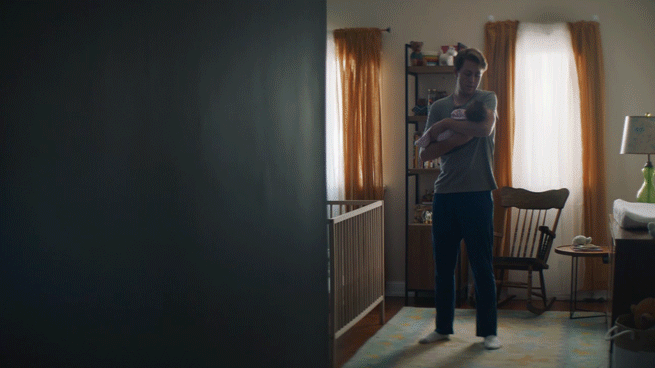66% of men have anxiety over raising a daughter due to challenges that women often face in society.
Gender-based aggressions that stem from unhealthy masculinities are normalized within our society. Because of this, they’re often overlooked or hard to identify. Part of our mission is to shed light on these behaviours and unpack their repercussions. Aggressions such as catcalling or punching a wall to deal with strong emotions are examples that feel all too familiar to women and young girls who are often on the receiving end.
Our newest short film, I Knew All Along, follows a dad's anxieties around raising a daughter told through a reflection of his past – that reveals his own problematic behaviour towards women.
-

70%
of Canadian men state that they’ve been protective about women in regards to safety around other men, or observed other men doing so.
-

42%
of women have experienced the assumption that women should be the primary caregivers when it comes to handling childcare, cooking, and housework.
-

51%
of young Canadian women have experienced men reacting with hostility after being rejected sexually or romantically.
What we can learn from these behaviours:
Unpacking anxieties around raising a daughter
We often hear hesitations, or even jokes, around how men are worried about having to raise a daughter. But where does this fear stem from? Men are aware of the unhealthy and potentially violent behaviours of masculinity that can harm women.
However, when boys and men recognize and take responsibility for this behaviour, they can help promote gender equity and work to create a world free of gender-based violence.
Processing vulnerability in a healthy way
Men are socialized to believe that vulnerability or expressing emotion is a sign of weakness. Because of this, many feel disconnected from their complex feelings and have difficulty expressing them. This can result in the use of violence and control to address difficult emotions.
As men, we can break this cycle by promoting vulnerability and mutual support among our male friends, family members and colleagues.
Challenging sexist comments
Sexism and sexual harassment are so ingrained within our culture that they can be difficult to identify within our own behaviour. When speaking to women, comments like “you should smile” or “calm down” can seem harmless, but they are actually feeding into oppressive societal norms of how women are ‘supposed’ to be.
Challenging sexist and discriminatory comments and jokes help us address gender inequity at its root.
Healthy masculinities are possible
Harmful norms and gender stereotypes hurt men and those around them. However, these are learned behaviours, not something men are inherently born with. Help us promote healthier masculinities by role modelling respect and gender equality.
The First Daughter Effect
The First Daughter Effect shows that having a daughter changes most men’s beliefs around the issues women face – whether they be societal, political or personal. Having a daughter is often a catalyst for reflection in men. However, women and girls can’t wait for this type of awareness and change to take place. When harmful behaviour is normalized as ‘boys being boys,’ it lays a foundation for even more harmful, and potentially violent behaviours to grow.
Half of men (51%) men admit to or have witnessed other men joking about not allowing their daughters to date.
7 in 10 women have seen men joke about not wanting to let their daughters date.
1 in 5 young Canadian women have experienced men expressing a lack of desire around having to raise a daughter.
2/3 of dads with daughters disclosed that having a daughter made them more concerned about the challenges that women often face in society.
To learn more about how you can be a part of creating change, read our guide on fostering healthier masculinities among young boys and men.
We are thankful to the following campaign sponsors:
Donate
Please donate to help us continue our mission of building a new vision of masculinity to end gender-based violence.
Need help?
Visit our helpful resources for more information and support for you, your loved ones, and your community.



